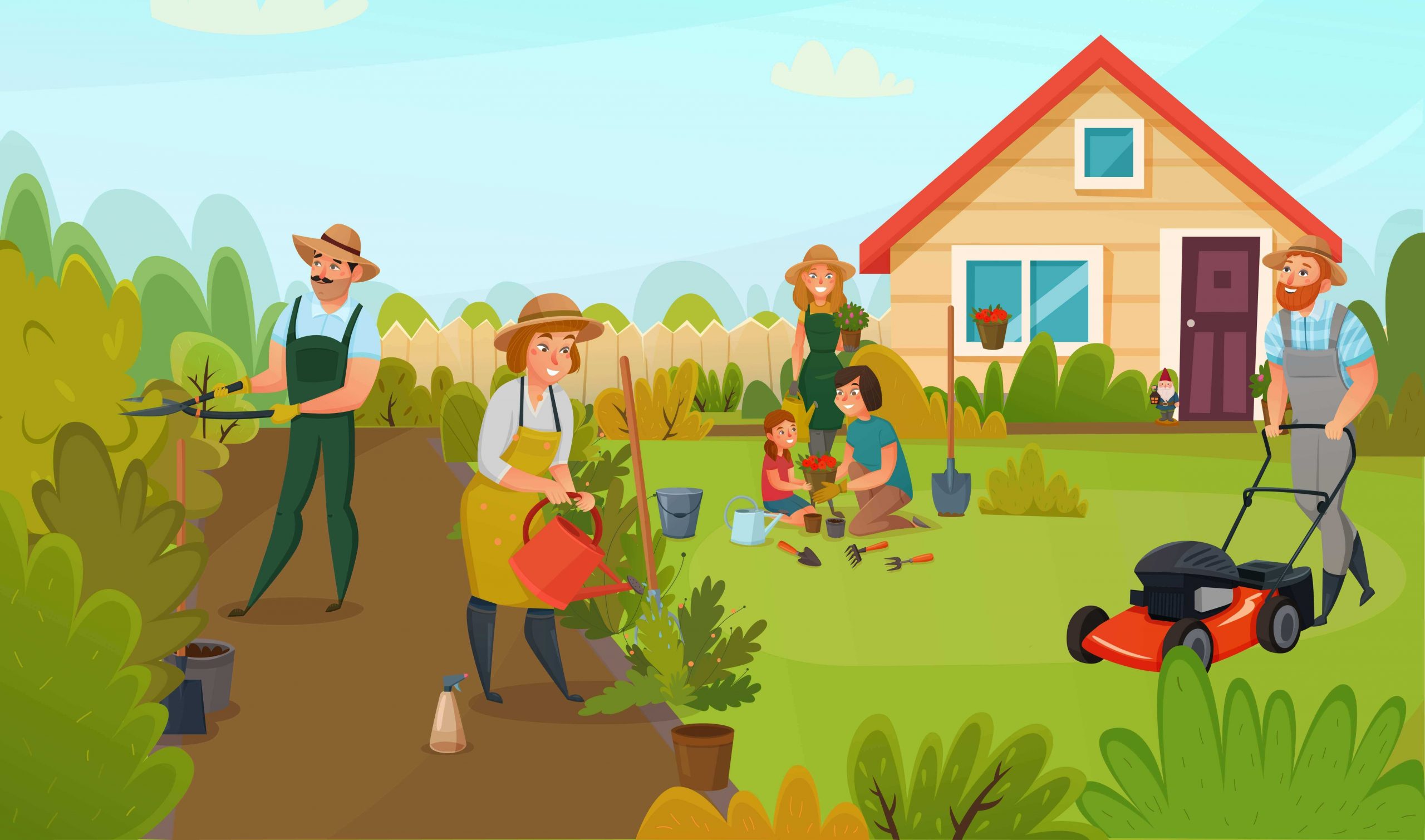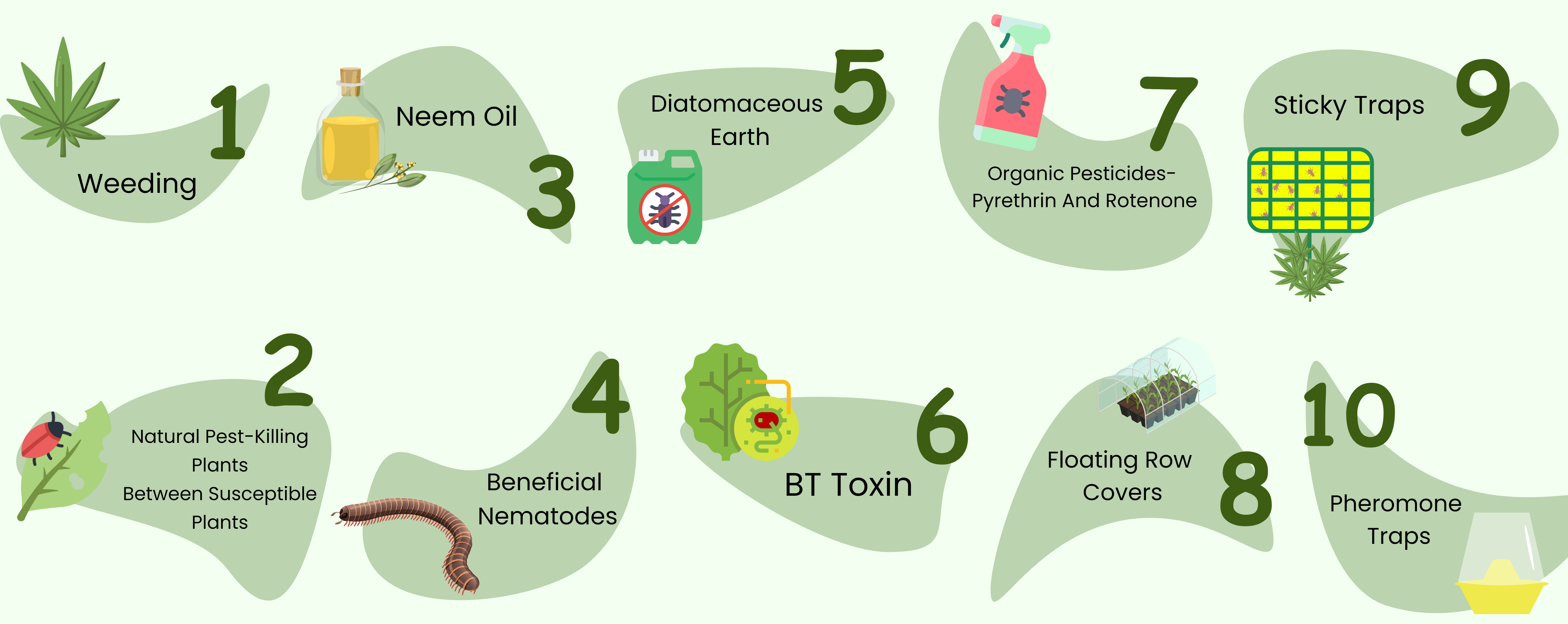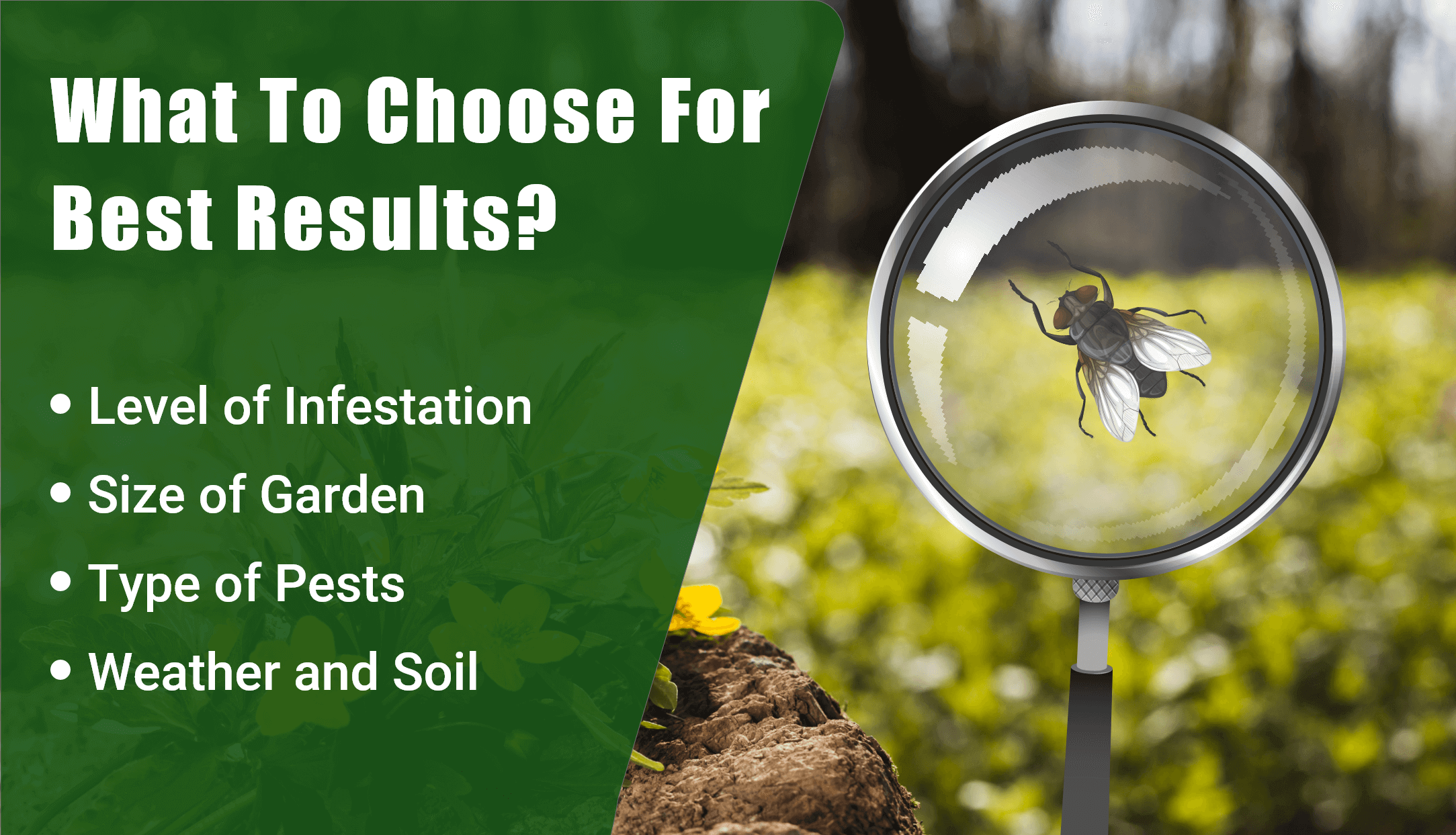Top 10 Organic Pest Control Methods For Your Garden
Published Date: December 7, 2023

Organic pest control is vital for environmentally friendly pest management. To help you succeed in organic gardening, we’ve identified the top 10 organic pest control methods that work. Remember that natural pest control demands vigilance and timely application for maximum effectiveness.
Let us move on to the next section where we’ve briefly discussed all the 10 methods to keep your plants safe and pests at bay.

Weeding
Although weeding doesn’t directly deal with insects, rodents, and other pests, optimizing the performance of the organic pest control agents is necessary. Weeding increases the natural fitness of the plants as the weeds compete for light, water, and nutrients.
Without weeds, garden plants can spread out their roots better and get access to water and sunlight, reducing their proneness to disease. Organic pest control consultants also advise weeding and regular soil plowing between batches of sowing as good ways to discourage pest growth.
Natural Pest-Killing Plants Between Susceptible Plants
Many plants for DIY pest control manage to save the plants grown around them, thus making such companion planting techniques quite effective. Refer to this quick list of natural pest deterrents to combat specific insects:
- Garlic – aphids, beetles, cabbage looper, cabbage maggot, imported cabbageworm, borers, carrot flies, red spider mites, etc.
- Borage – tomato worms
- Marigold – beetles
- Fennel – Snails
- Lemongrass – Mosquitoes
- Mint – worms, aphids, whiteflies, etc.
- Chrysanthemums – silverfish, beetles, flies, etc.
However, you should note that some companion plants, like beans, aren’t good for leguminous plants. Much of the evidence is anecdotal and complex, and data for companion planting is inconclusive. You can also choose wild varieties and pest-resistant plants for your garden, mainly if you aim to grow your produce.
Neem Oil
Despite its strong odor, Neem oil proves highly effective against Japanese beetles, whiteflies, aphids, moth larvae, scale, and spider mites. Its success lies in multiple mechanisms, from suffocating pests to disrupting their hormones through azadirachtin.
Incorporate neem oil into your routine garden care for optimal pest prevention. When mixed with diluted soap water, this natural insect killer becomes an excellent spray for indoor potted plants susceptible to mites.
Beneficial Nematodes
As we know, not all worms are terrible since earthworms are a farmer’s best friend. You may like other parasitic nematodes in your garden that will keep insects like fly larvae, borers, billbugs, and gnats away.
They infect an insect host, producing bacteria and toxins that eventually kill it, not harming beneficial soil critters, pets, and wildlife.
The beneficial nematodes are sold as infective juvenile dauerlarva mixed with water and then applied to the soil near the plants. However, you should be careful to buy only reputed brands as inferior ones may release organisms that will destroy your garden.
Diatomaceous Earth
A favorite organic insect control method, garden-safe diatomaceous earth works by drawing moisture out of the pest, thus ruining its osmotic balance and causing death. The particles are shaped such that they cut up the insects’ bodies as well. The results are apparent within a week.
However, the success of diatomaceous earth depends on the insect variety, size of the infestation, atmospheric temperature, and humidity. Being highly absorbent, excessive moisture or rain can limit its effectiveness. You should also avoid using it near flowers and wherever you have encouraged good insects and soil critters to grow.
BT Toxin
Bt toxin, derived from Bacillus thuringiensis, offers controversial yet highly targeted pest control when applied topically. Despite its association with GM crops, this naturally occurring soil bacterium poses no threat to pets or small animals, making it a safe option for garden use.
Bt toxin is effective against different pests but requires careful dosage consideration and is available in various forms, such as baits and sprays. Sold as inactivated spores, it destroys insect larvae’ guts but may not work on fully grown pests. Consultation with an organic pest control company is recommended for butterfly-friendly gardens or full-blown infestations.
Explore a pest control company’s role and functions to understand its operations and services better.
Organic Pesticides- Pyrethrin And Rotenone
Pyrethrin, derived from Chrysanthemums, is a potent pesticide comprising six chemicals that effectively target pests like fleas, ants, and flies. By paralyzing the nervous systems of these pests, pyrethrins are available in ready insect spray or concentrated forms for dilution.
Rotenone, a natural insecticide, disrupts the cellular metabolism of potato beetles, cabbage worms, raspberry beetles, and flea beetles. While effective against pests, rotenone has been linked to Parkinson’s Disease, posing a health concern for humans. Additionally, it exhibits high toxicity to aquatic organisms, mainly fish, making it crucial to prevent its entry into water bodies.
Floating Row Covers
A floating row cover is a non-toxic solution to protect plants from insects and typical weather vagaries. It is a white gauze-like, non-woven fabric made from polyester or polypropylene that is sun bonded; it floats over the row of plants, giving them headroom to push out upwards. The material is secured to the ground with pins or rocks or suspended over a lightweight wood or wire frame.
Floating row covers are a great addition to other techniques as they prevent pests such as insects, rabbits, mice, birds, and groundhogs from feeding on your plants. They even improve the moisture and humidity levels, helping reduce water use.
Sticky Traps
Sticky traps are cardboard or other plastic trays coated with various types of glue that can trap insects like flies, fleas, scorpions, mites, beetles, etc. They can be purchased with no pesticides.
Sticky traps are more effective in determining the type of pest infestation rather than controlling the occurrence of pests.
They don’t help in organic rodent control. They help deter insects from coming to the garden in the early days, but professionals are recommended once you have more pests.
Pheromone Traps
Pheromone traps use the chemicals insects secrete to lure them toward the traps. Pheromones signal food availability, find mates, warn of danger, etc. They are beneficial when used in the early detection of pest attacks and are quite effective in preventing Asian gypsy moths and Japanese beetles.
Pheromones should be used with caution and preferably by pest management experts. They are usually specific to certain insects and won’t work for others. They should also be used carefully, with no children nearby, and thoroughly washed off later as the smell clinging to the user can attract pests indoors.
What To Choose For Best Results?
The choice of the best organic pest control techniques hinges on several factors:

- Level of Infestation: The severity of the pest issue influences the selection of organic pest management methods. For larger infestations, more potent doses may be necessary.
- Size of Garden: The scale of your garden matters. Small indoor or terrace gardens may benefit from various organic pest control techniques, while more extensive backyard gardens may require more caution and potent solutions.
- Type of Pests: Identifying the specific pests affecting your garden helps tailor the approach. Different pests may respond differently to various organic methods.
- Weather and Soil: Environmental factors like weather and soil conditions play a role. Adapting pest control strategies based on these conditions enhances their effectiveness.
For those cultivating produce, strategic planning includes planting naturally resistant varieties and utilizing natural repellent plants. If DIY methods prove insufficient, organic pest control companies like Bell Environmental Services Pest Control and Ehrlich Pest Control Services offer proprietary and effective solutions for diagnosis and remedy.
FAQs
Why Is Organic Pest Control Important For My Garden?
Organic pest control is crucial for gardens as it avoids harmful synthetic chemicals, preserving soil health and biodiversity. It promotes a natural balance in the ecosystem, protecting beneficial insects and ensuring the long-term sustainability of the garden.
How Do I Identify Pests In My Garden?
Regularly inspect your plants for signs of damage, unusual discoloration, or the presence of pests. Use resources like gardening guides or consult with local experts to identify specific pests in your region.
How Does Companion Planting Work In Organic Pest Control?
Companion planting in organic pest control involves strategically planting mutually beneficial crops to deter pests. Certain plant combinations can repel pests, attract beneficial insects, or mask the scent of vulnerable plants, promoting a natural and sustainable pest management method in organic farming.
How Do I Make Homemade Organic Sprays For Pest Control?
Create simple, effective sprays using ingredients like garlic, chili peppers, soap, and water. These homemade solutions can repel or eliminate pests without resorting to synthetic chemicals.
When Is The Best Time To Implement Organic Pest Control Measures?
Implement organic pest control measures during the early stages of plant growth or at the onset of pest activity to prevent widespread infestations and minimize environmental impact. Timing is crucial to ensure the effectiveness of natural solutions and promote a healthy, thriving garden.
